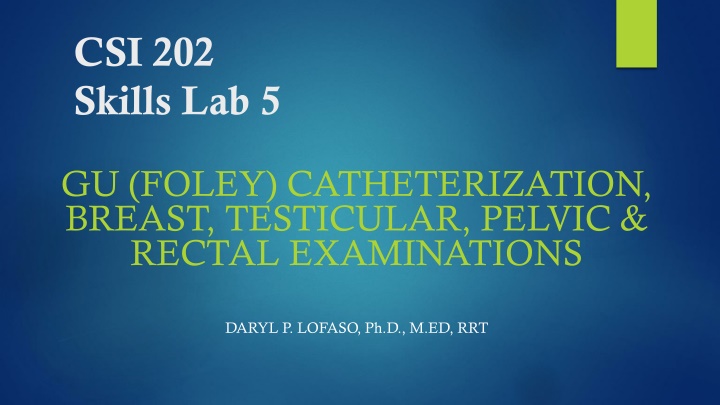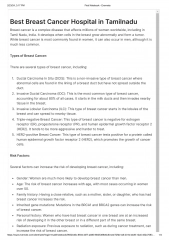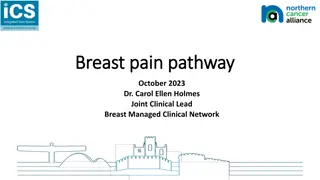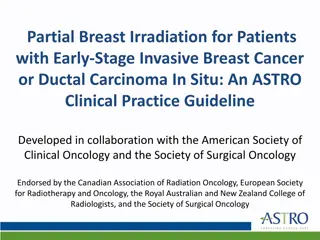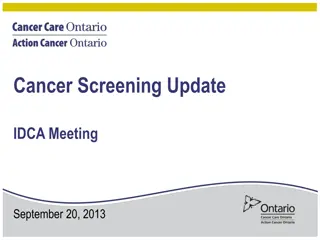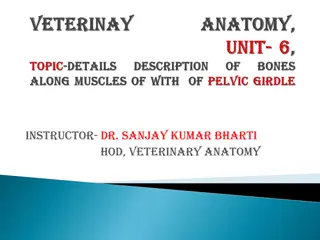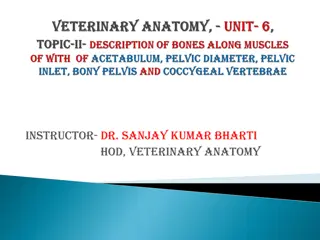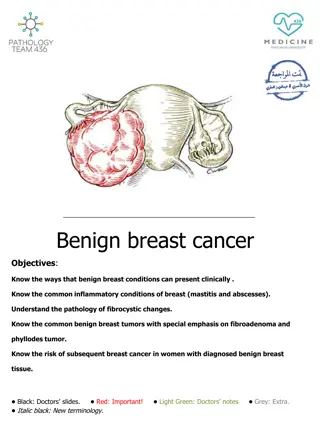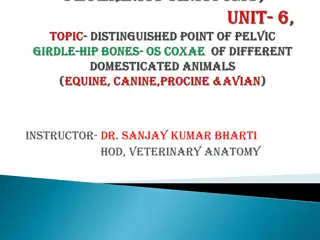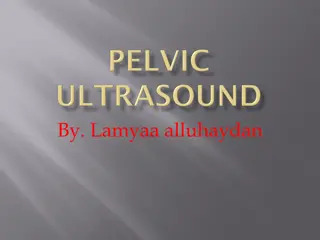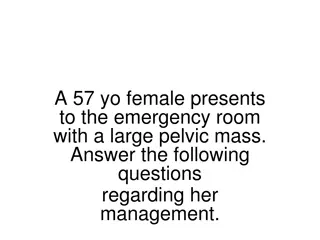Clinical Skills Lab: Foley Catheterization, Breast & Pelvic Examinations
This informative content covers topics such as urethral catheterization, indications for catheterization, anatomic landmarks, male and female catheterization techniques, nosocomial UTIs, pelvic and breast examinations, breast cancer screening recommendations, and breast cancer statistics. It is a comprehensive guide for medical professionals and students in the field.
Download Presentation

Please find below an Image/Link to download the presentation.
The content on the website is provided AS IS for your information and personal use only. It may not be sold, licensed, or shared on other websites without obtaining consent from the author.If you encounter any issues during the download, it is possible that the publisher has removed the file from their server.
You are allowed to download the files provided on this website for personal or commercial use, subject to the condition that they are used lawfully. All files are the property of their respective owners.
The content on the website is provided AS IS for your information and personal use only. It may not be sold, licensed, or shared on other websites without obtaining consent from the author.
E N D
Presentation Transcript
CSI 202 Skills Lab 5 GU (FOLEY) CATHETERIZATION, BREAST, TESTICULAR, PELVIC & RECTAL EXAMINATIONS DARYL P. LOFASO, Ph.D., M.ED, RRT
Urethral Catheterization Indications Long Term Refractory bladder outlet obstruction Neurogenic bladder with urinary retention Complications of incontinence Skin breakdown Terminally ill Short Term Urologic or pelvic surgery Acute urinary retention Urinary output monitoring in critically ill
Anatomic Landmark for Female Catheterization
Male Catheterization Uncircumcised male -pull foreskin back Visualize the meatus Maintain hand position throughout procedure
Nosocomial UTI 80% associated w/urinary catheters Common Organisms E. coli Enterococcus species* Pseudomonas aeruginosa* Candida albicans * Antibiotic resistance may lead to increased morbidity
Pelvic Examination Indications: Physical Exam Abdominal pain Pelvic pain Yearly screening (pap smear)
Breast Examination Indications: Physical Exam Breast Pain Lumps Breast Development- adolescent
Breast CA NCI recommends mammograms every 1-2 years at 40 yrs. of age Mammograms yearly at age 50 Mammograms as early as 25 yrs. of age for pt. with high risk of breast CA Studies suggest Breast CA could be cut by 36-44% if mammography performed annually
Breast CA - Statistics In 2021 1 in 8 U.S. woman (about 13%) will develop breast cancer over the course of her lifetime. 281,550 women in the US were diagnosed with breast cancer 43,600 women in the US died from breast cancer 2,650 new cases of invasive breast cancer are expected to be diagnosed in men. https://www.breastcancer.org/symptoms/understand_bc/statistics
Rectal Examination Indications: Physical Exam Abdominal pain Rectal pain Urogenital dysfunction (complaints) Screening for Colon CA and Prostate CA
Charting: Rectal Examination Tone normal, decrease or absent Masses Stool color, Hemoccult examination of stool Prostate size, texture
Prostate CA About 1 in 8 diagnosed with prostate cancer during his lifetime. 2nd leading cause of death in American men (1 in 41) Only 3 men in 100 will actually die of it Family History - risk African American men: very high risk High fat diet associated with risk
Testicular Examination Indications: Physical Exam Urologential dysfunction (complaints)
Testicular CA Incidence of testicular cancer is low, about 1 of every 250 males Average age: 33 yrs. Lifetime risk: 1 in 5,000 Testicular Self-examination (TSE) https://www.cancer.org/cancer/testicular-cancer/about/key-statistics.html
Professional Conduct Introduce yourself Explain the procedure/exam to pt. Ask pt. if they have any questions Cover pt. with a sheet. Only expose area which you are examining, then cover again While performing the procedure/exam, explain to the pt., you may or may not be some discomfort associated with the exam, but you will be as gentle as possible.
